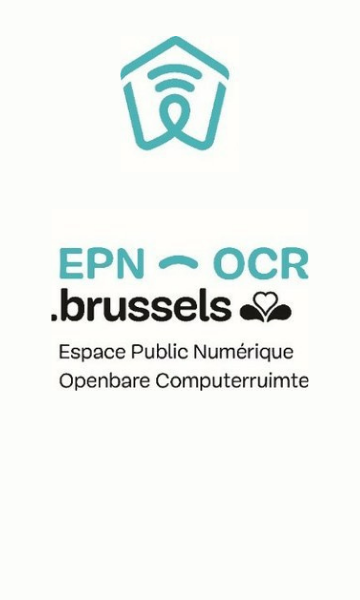Since 2019, DPSs have been able to apply for "Digital Public Space recognised by the Brussels-Capital Region" certification if they meet the conditions of the recently updated DPS Charter. In June, the Digital Inclusion Working Group, which is made up of all the Brussels regional bodies and private players in the sector, gave its approval for various adaptations to be made to four categories of the certification.
They are located throughout Brussels and provide access to a computer and/or the Internet for the entire population. Many people have dared to venture into this new online technological world thanks to them. Have you guessed? We are talking about Digital Public Spaces! Often known by the abbreviation "DPS", they organise computer training and are an important aid for individuals who need to complete or submit administrative documents, for example.
Since 2019, DPSs have been able to apply for "Digital Public Space recognised by the Brussels-Capital Region" certification if they meet the conditions of the recently updated DPS Charter. In June, the Digital Inclusion Working Group, which is made up of all the Brussels regional bodies and private players in the sector, gave its approval for various adaptations to be made to four categories of the certification.
To begin with, and as their name indicates, DPSs are now required to welcome all sections of the public. Although the training courses and introductory sessions they organise are often aimed at a specific group, DPSs cannot prohibit access to IT tools or the support of the multimedia facilitator for any processes. However, these spaces are still able to set internal rules and regulations and establish limits on the use of the IT tools provided.
Given the many different training courses provided in all DPSs, future applications for certification must be accompanied by a description of the activities organised by the Space concerned. It should also be noted that the definition of the term "training" has been broadened and that its synonyms are now included in the Charter of DPSs recognised by the Brussels Region.
In addition, the duration of the certification is no longer limited to five years. It is currently indefinite as long as the admission criteria are met and the DPSs honour their commitments under the granting of the certification.
Finally, the certification procedure is now simpler. Previously, the coordinator had to review the application and make a recommendation to the Digital Inclusion Working Group. This Group then fulfilled its mission by confirming the application for membership. Membership applications are now validated by a smaller group, the Digital Inclusion Steering Committee.
In short, the above-mentioned adaptations make certification even more attractive for DPSs in the Brussels-Capital Region. Certified DPSs can enjoy numerous advantages, such as greater visibility and the availability of the equipment they need to support and train those people who are farthest from the digital world.
